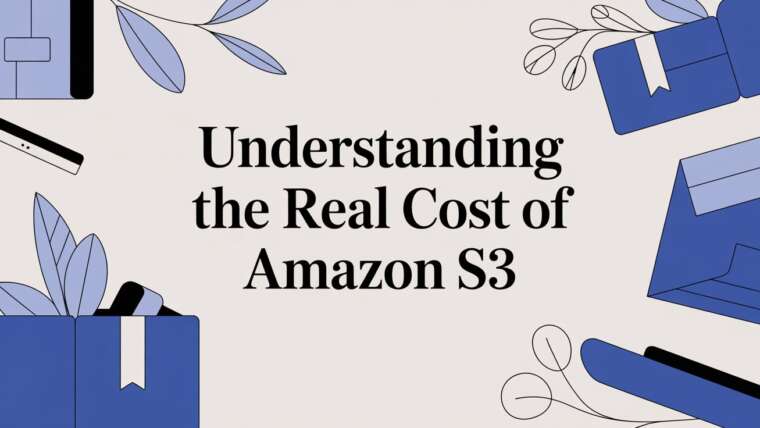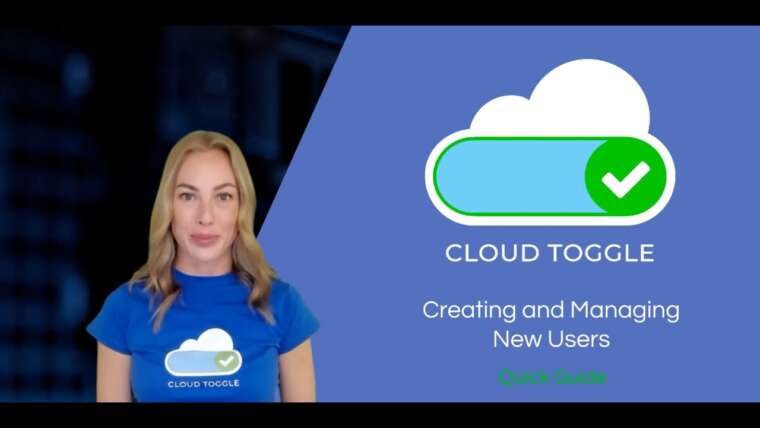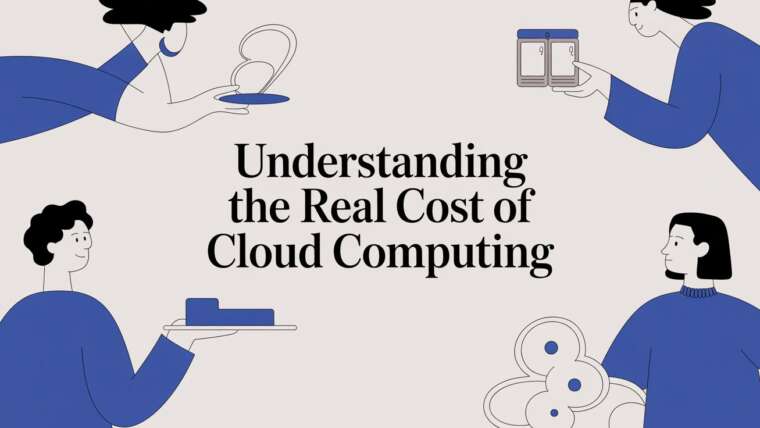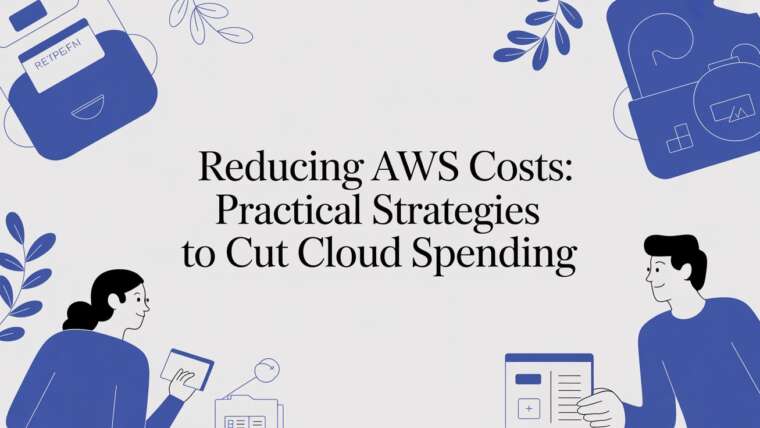Ever heard of a FinOp? It stands for Financial and Operations Principal, and if you're in the world of broker-dealers, this role is a pretty big deal.
Think of a FinOp as the firm's financial gatekeeper. They're the senior, licensed professional responsible for making sure the company plays by the very strict rules of financial reporting and operational conduct. This is far more than just an accounting job; it's a critical compliance function at its core.
Defining the FinOp A Guardian of Financial Integrity

So, what does that really mean day-to-day? While a CFO is busy steering the ship toward profitability and mapping out long-term financial strategy, the FinOp is laser-focused on regulatory compliance. Their entire job is to safeguard the firm from financial missteps and ensure every 'i' is dotted and 't' is crossed according to the rulebook. They are the backbone of a broker-dealer's operational health.
The Regulatory Mandate
This isn't an optional hire. The role of a Financial and Operations Principal is mandated by the Financial Industry Regulatory Authority (FINRA) and the Securities Exchange Commission (SEC). Just about every single registered broker-dealer, and there are over 3,460 of them in the U.S., is required to have a qualified FinOp on board.
Getting qualified is no small feat. A candidate has to pass the notoriously tough Series 27 or Series 28 examination, depending on what the firm does. You can learn more about the FINRA designation and its requirements to see just how rigorous the process is.
This whole setup ensures one thing: there's always someone with proven expertise who is personally on the hook for the accuracy of financial reports sent to regulators. It’s a high-stakes position that comes with significant personal liability, making it an indispensable part of the financial industry's structure.
A FinOp doesn't just manage the books; they are the designated guardian of the firm’s compliance, ensuring every financial action aligns with stringent industry regulations.
To give you a clearer picture, here's a quick rundown of what a FinOp is responsible for.
FinOp at a Glance Key Responsibilities
This table breaks down the core duties that fall under the FinOp's purview.
| Responsibility Area | Description |
|---|---|
| Financial Reporting Supervision | Ensures all regulatory reports, especially the critical FOCUS report, are accurate and filed on time. |
| Net Capital Compliance | Continuously calculates and monitors the firm's net capital to ensure it never dips below required minimums. |
| Financial Records Oversight | Keeps the firm’s books and records pristine, organized, and ready for an audit at a moment's notice. |
| Regulatory Liaison | Acts as the main point of contact for financial inquiries from FINRA, the SEC, and other regulatory bodies. |
| Internal Controls | Designs and maintains the firm's financial controls and procedures to prevent errors and ensure compliance. |
In short, the FinOp serves as the firm's conscience when it comes to financial operations, making sure everything is airtight, compliant, and above board.
The Core Responsibilities of a FinOp
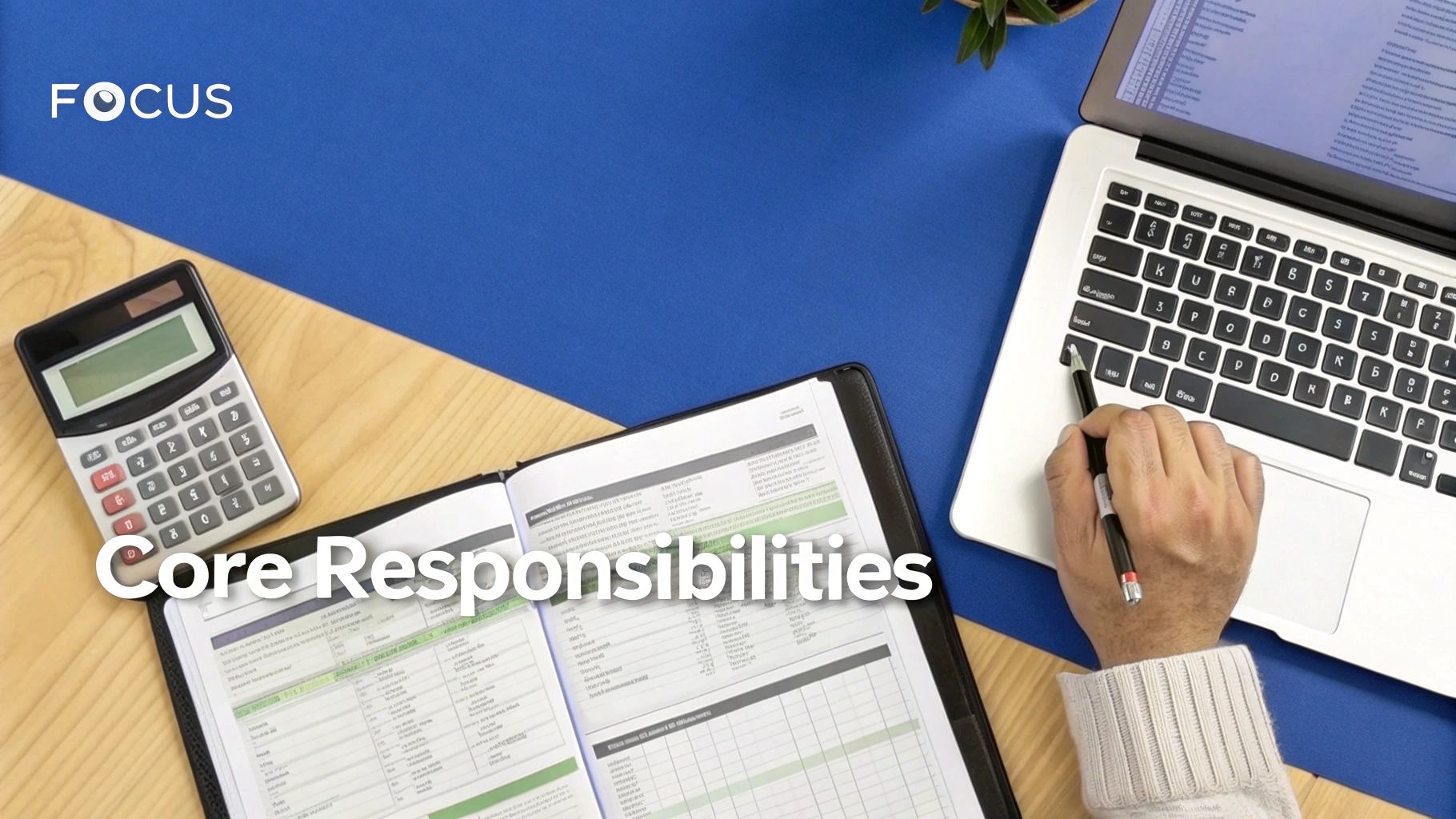
Calling a FinOp a "financial guardian" is a good starting point, but what does their day-to-day actually look like? Their work isn't just about simple bookkeeping; it's a very specific set of tasks that form the bedrock of a broker-dealer's legal and operational survival.
These responsibilities carry serious weight and often, personal liability for the FinOp holding the role.
At the very heart of the job is the meticulous preparation and supervision of financial regulatory reports. The big one is the FOCUS report (Financial and Operational Combined Uniform Single report). This document is a detailed snapshot of the firm's financial health, submitted to regulators on a strict schedule.
Think of the FOCUS report as the firm's financial report card. An inaccurate or late submission is an immediate red flag for regulators, potentially triggering audits, hefty fines, and serious reputational damage. The FinOp is the person who signs off on it, personally vouching for its accuracy.
Upholding Net Capital Requirements
Another cornerstone of a FinOp's world is the constant calculation and monitoring of the firm's net capital. FINRA and the SEC have rigid rules about the minimum amount of liquid capital a broker-dealer must have on hand at all times. This isn't a "set it and forget it" number; it changes every single day with market shifts and the firm's trading activity.
The FinOp is responsible for making sure the firm never dips below this critical threshold. Failing to do so is a massive violation that can lead to an immediate suspension of business operations. It’s a high-stakes calculation that literally determines if the firm can legally open its doors for business each day.
The personal liability tied to this role really hammers home how crucial accurate financial statements and timely regulatory filings are. A FinOp's diligence is the firm's first and best line of defense against costly regulatory actions.
Maintaining Flawless Records and Operational Oversight
Beyond these critical duties, a FinOp's job expands into broader operational oversight. This means maintaining immaculate financial books and records, overseeing customer protection rules, and being the main point of contact for any regulatory questions. If you want to dig deeper, you can learn more about the full scope of these duties and why firms often outsource the role from experts like ACI Secure.
This kind of operational discipline isn't unique to regulatory finance. It shares the same principles as managing other complex financial areas, like cloud spending. Just as a FinOp tracks every dollar for compliance, a smart strategy for what is cloud cost management and how to do it ensures tech spending stays aligned with business goals and avoids waste.
Ultimately, a FinOp's responsibilities boil down to a few key areas that keep the firm solvent, compliant, and trustworthy.
- Financial Reporting: Preparing and filing all required financial reports, including the monthly and quarterly FOCUS reports.
- Net Capital Computation: Performing daily or weekly net capital calculations to stay compliant with SEC Rule 15c3-1.
- Record Keeping: Supervising the firm’s books and records, making sure they are perfectly accurate and ready for an audit at a moment's notice.
- Internal Controls: Building and implementing the financial procedures needed to protect the firm's and its customers' assets.
What It Takes to Be a FinOp: Essential Skills and Qualifications
Becoming a Financial and Operations Principal, or FinOp, isn't just about passing a few tough exams; it's about blending that formal knowledge with a specific set of real-world skills. Think of it as part art, part science.
Most people start their journey by passing either the Series 27 or Series 28 exam. The right license really depends on the type of firm and the responsibilities you'll be taking on.
- The Series 27 license is geared toward full-service broker-dealers that handle complex, in-depth reporting.
- The Series 28 license is a better fit for introducing firms, where the focus is more on operational oversight.
The Series 27 exam is a beast. It dives deep into everything from financial reporting and customer protection to operational management within fintechs and broker-dealers. This isn't just about memorizing rules; it's about understanding the intricate regulatory frameworks and net capital requirements that keep a firm afloat. You can get more insights on FINOP licensing from the experts at InnReg.
But a license is just the ticket to the game. Once you're in, you need a razor-sharp eye for detail. A great FinOp can sift through endless spreadsheets and reports to spot a tiny discrepancy before it balloons into a major compliance headache. Just as crucial is clear communication; you have to be able to explain complex financial data to regulators and internal teams in a way they can actually understand.
Core Analytical and Communication Skills
Analytical thinking is the engine that drives a FinOp. It’s what helps you spot trends, forecast capital needs, and build the controls that keep the firm safely above its minimum capital thresholds. You’re not just crunching numbers; you’re translating them into a clear story so that colleagues who don't live in spreadsheets can grasp key compliance metrics.
Here’s what that looks like in practice:
- Obsessive attention to detail to ensure nothing slips through the cracks.
- Strong statistical and data analysis skills to support accurate net capital computations.
- Excellent verbal and written communication to act as the bridge between finance, compliance, and operations.
And the learning never stops. SEC and FINRA rules are constantly evolving, so continuous professional development isn't optional; it's mandatory. Savvy FinOp candidates are even drawing parallels from cloud cost management to bring more strategic value to finance roles in tech-heavy firms.
Attention to detail and clear reporting are the cornerstone skills that define a top-tier FinOp.
When hiring managers look for a FinOp, they're looking for more than just a passing exam score. They want to see a track record that proves you can handle the job. They often hunt for candidates with experience in audits, familiarity with ERP systems, and a knack for collaborating with different stakeholders.
A good analogy is to think of a FinOp as an air traffic controller for a firm’s finances, carefully guiding every single transaction to a safe landing.
- Audit backgrounds are invaluable for preparing regulatory reports.
- Familiarity with accounting software makes the FOCUS filing process much smoother.
- Teamwork skills are essential for coordinating between compliance and operations.
Additional Professional Credentials
A solid educational foundation in accounting, finance, or economics is almost always a prerequisite. Many of the best FinOps hold a bachelor’s or master’s degree in one of these fields, which provides the analytical rigor needed for the role.
Professional certifications like a CPA (Certified Public Accountant) or CFA (Chartered Financial Analyst) can also give you a serious edge in a competitive job market. But beyond the exams and degrees, what truly separates the good from the great are intangible traits like resilience under pressure and unwavering ethical integrity.
Companies aren't just hiring a certification; they're hiring a person they can trust. They want this complete package of credentials, exams, and core skills. This blend ensures that the person they bring on board can maintain compliance, streamline operations, and respond to auditor questions with confidence. If you ask a hiring manager to define a top-tier FinOp, they'll point directly to these skills as the hallmarks of a true professional.
Stay curious always.
FinOp vs FinOps Clearing Up the Confusion
It's a common mix-up, but FinOp and FinOps are two completely different things from separate professional worlds. While the names are nearly identical, confusing them is like mistaking a ship's captain for the entire practice of shipbuilding.
One is a specific, licensed person. The other is a cultural practice for managing cloud technology costs.
A FinOp, short for Financial and Operations Principal, is a licensed professional laser-focused on broker-dealer compliance in the securities industry. Their entire world revolves around FINRA rules, net capital computations, and keeping the firm's financial reporting perfect to sidestep massive regulatory penalties. This role isn't just important; it's a legal requirement for the firm.
FinOps, on the other hand, is a cultural and operational framework. It’s all about bringing financial accountability to the variable, pay-as-you-go world of the cloud. The goal here is to get engineering, finance, and business teams talking the same language so they can make smart, data-driven decisions about cloud spending. It's about building a culture of cost awareness without killing innovation.
A Tale of Two Worlds
The difference really snaps into focus when you look at what each one is trying to accomplish.
A FinOp’s main job is risk mitigation and regulatory adherence. They are the guardians who protect the firm from legal blowback and financial penalties by making sure every rule is followed to the letter.
In contrast, the primary goal of FinOps is cloud efficiency and value optimization. People in this field are trying to squeeze the maximum business value out of every single dollar spent on cloud services. To dig deeper into this practice, our site has a ton of guides and articles, like those found under the FinOps tag. This connection helps tie cloud spending directly to business growth.
The infographic below breaks down the key parts of the FinOp role, including the exams and skills needed.
As you can see, a FinOp is defined by formal qualifications and a very specific skill set geared toward regulatory compliance, which is a world away from the broad, collaborative framework of FinOps.
A FinOp is a person responsible for regulatory compliance in finance. FinOps is a practice for managing cloud costs. The first is a required role, the second is an adopted strategy.
To make this crystal clear, let's put them side-by-side.
FinOp vs FinOps A Clear Comparison
This table directly compares the FinOp role against the FinOps practice to eliminate any remaining confusion.
| Aspect | FinOp (The Role) | FinOps (The Practice) |
| :— | :— |
| Primary Goal | Ensure regulatory compliance and financial accuracy for a broker-dealer. | Maximize business value from cloud spending through efficiency and collaboration. |
| Scope | Narrowly focused on securities industry rules, reporting, and net capital. | Broadly focused on the entire cloud infrastructure and its associated costs. |
| Key Stakeholders | Regulators (FINRA, SEC), executive management, and compliance teams. | Engineering, finance, product, and leadership teams across the organization. |
| Core Skills | Deep knowledge of FINRA/SEC rules, accounting principles, and attention to detail. | Cloud cost analysis, data interpretation, cross-functional communication, and automation. |
| Outcome | Avoids fines and legal trouble; maintains the firm’s license to operate. | Drives cost savings, improves budget predictability, and enables business agility. |
So, while they sound alike, a FinOp keeps a financial firm out of regulatory hot water, while FinOps helps a tech-driven company get the most bang for its cloud buck. Two different worlds, two very different missions.
The Strategic Value a FinOp Brings to Your Business

A skilled Financial and Operations Principal does so much more than file reports and check compliance boxes. In fact, seeing the FinOp role as just another cost center is a massive missed opportunity. They should be viewed as a key business partner, a strategic asset who directly shapes the long-term health and success of the firm.
Think of them as your first line of defense against major business threats. By keeping impeccable records and ensuring strict adherence to net capital rules, a FinOp shields the company from crippling fines, regulatory sanctions, and the kind of reputational damage that's hard to come back from. It’s not just about avoiding penalties; it’s about building a foundation of unshakable trust.
A great FinOp transforms compliance from a reactive chore into a proactive strategy. Their insights protect the company's reputation and contribute directly to sustainable growth.
This trust makes a world of difference with regulators and investors, creating an environment where the business can operate with confidence. When a FinOp is truly integrated into the business, their financial oversight helps streamline operations, making the entire company more efficient and ready to scale.
From Compliance to Strategic Insight
A strategic FinOp doesn't just report the numbers; they interpret them. They have a knack for spotting potential financial stressors long before they become full-blown crises, offering insights that lead to smarter business decisions. For example, their analysis might uncover operational dead weight that, once fixed, frees up cash for exciting growth projects.
This kind of financial discipline is non-negotiable for any company juggling complex budgets. In the tech world, this exact mindset is crucial, which is why so many leaders are now asking smarter cloud finance questions to get a better handle on their technology spend. A FinOp champions this fiscal responsibility across the entire organization, helping build a culture where everyone sees financial health as a shared priority.
By turning what could be a dry regulatory burden into a strategic advantage, a FinOp helps build a more resilient and efficient business. They are absolutely instrumental in:
- Protecting the firm’s reputation by guaranteeing rock-solid compliance and building trust with regulators.
- Improving operational efficiency through sharp financial oversight and identifying areas for process improvement.
- Enabling sustainable growth by providing the stable financial bedrock needed to expand without wobbling.
- Mitigating financial risks through proactive monitoring and catching potential problems early.
Ultimately, a FinOp’s work ensures the company isn’t just surviving, but actively thriving. Their contribution is a direct investment in the firm's stability, reputation, and future, making them an indispensable part of any leadership team.
When to Consider Outsourcing Your FinOp Role
For many firms, especially startups and smaller broker-dealers, hiring a full-time, in-house Financial and Operations Principal just isn't practical. The salary for such a specialized, high-liability role can be a heavy lift. On top of that, finding a qualified candidate with the right experience is often a real challenge.
This reality has led many to a smart alternative: outsourcing this critical function.
Outsourcing gives a firm immediate access to deep expertise without the high overhead of an executive salary and benefits package. Instead of relying on one person, you're often tapping into the collective knowledge of a team that has seen and solved a huge range of regulatory issues across many different firms. This arrangement can also significantly lighten the administrative load on your internal team.
Making the Right Choice for Your Firm
Deciding between hiring in-house and bringing in an outsourced provider is a major strategic choice. An in-house FinOp becomes deeply embedded in your company culture and daily operations, which can be a massive advantage. But an outsourced expert brings a breadth of experience and a fresh perspective that an internal employee might not have.
An outsourced FinOp also offers flexibility. As your business grows or your needs shift, a third-party provider can scale their services up or down to match. That’s much harder to do with a full-time employee.
Outsourcing your FinOp role is more than just a cost-saving move; it's a strategic decision to access specialized expertise, tighten up compliance, and gain operational flexibility. It lets company leaders focus on growing the business, confident that regulatory duties are being managed by seasoned pros.
Before you make a call, it's vital to weigh the pros and cons based on your firm's specific situation.
Here's a quick comparison to help you think it through:
- In-House FinOp: Offers deep integration with your company culture and day-to-day operations. However, this comes with a higher fixed cost and a potentially narrower range of experience.
- Outsourced FinOp: Provides access to broader expertise and greater flexibility, often at a lower cost. The tradeoff is that they may be less involved in daily internal matters.
Got Questions About the FinOp Role?
Let's clear things up. Here are some quick, straightforward answers to the most common questions people ask about the Financial and Operations Principal role. This should help put all the pieces together.
What’s the Personal Liability of a FinOp?
The personal liability for a FinOp is serious; it’s one of the defining features of the job. When a FinOp signs off on financial documents like the FOCUS report, they are personally vouching for its accuracy. If regulators find significant errors or negligence, the FinOp can face fines, suspension, or even a permanent ban from the securities industry.
This is exactly why attention to detail is a non-negotiable skill for anyone in this position. The FinOp is the firm’s last line of defense for financial integrity, and their personal accountability is what keeps the firm’s regulatory filings honest.
How Is a FinOp Different from a CFO?
While both are senior financial roles, they play on completely different fields. A Chief Financial Officer (CFO) is looking at the big picture: the company's overall financial strategy, profitability, and long-term growth.
A FinOp, on the other hand, has a laser-focused mission: regulatory compliance. Their primary job is to make sure the firm follows every single FINRA and SEC rule for financial reporting and net capital. Think of it this way: a CFO is steering the ship toward its destination, while the FinOp is making sure the ship is seaworthy and obeys all maritime laws.
Can a Firm Legally Operate Without a FinOp?
Absolutely not. A registered broker-dealer cannot legally open its doors without a designated and qualified FinOp. This is a direct mandate from FINRA. With very few exceptions (like sole proprietorships), every firm must have a principal who has passed the Series 27 or 28 exam and is officially registered with the firm.
Operating without a designated FinOp is a huge red flag for regulators. It’s a serious violation that can get a firm’s business activities shut down immediately. The role isn't just a good idea; it's a fundamental requirement to legally operate in the securities industry.
This rule shows just how much regulators value having one qualified person who is personally on the hook for the firm's financial and operational compliance.
Are you looking for ways to bring similar financial discipline to your cloud spending? CLOUD TOGGLE helps teams automatically shut down idle cloud resources, cutting waste and reducing your AWS and Azure bills. Take control of your cloud costs by visiting https://cloudtoggle.com to start your free trial.

